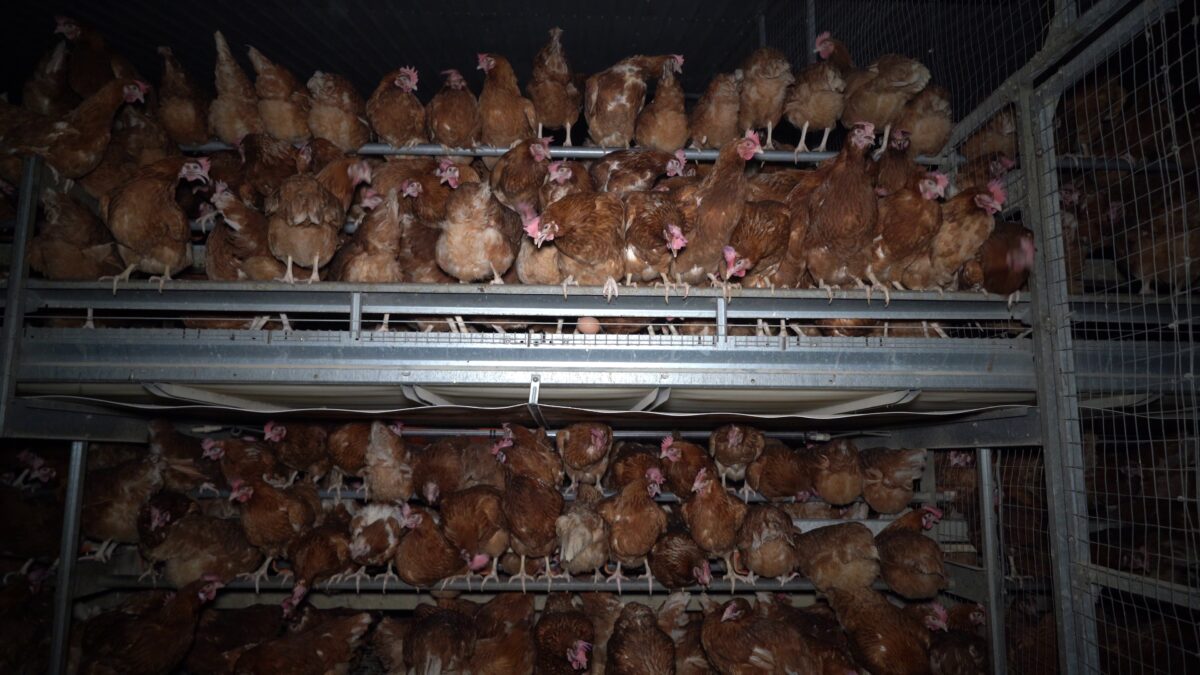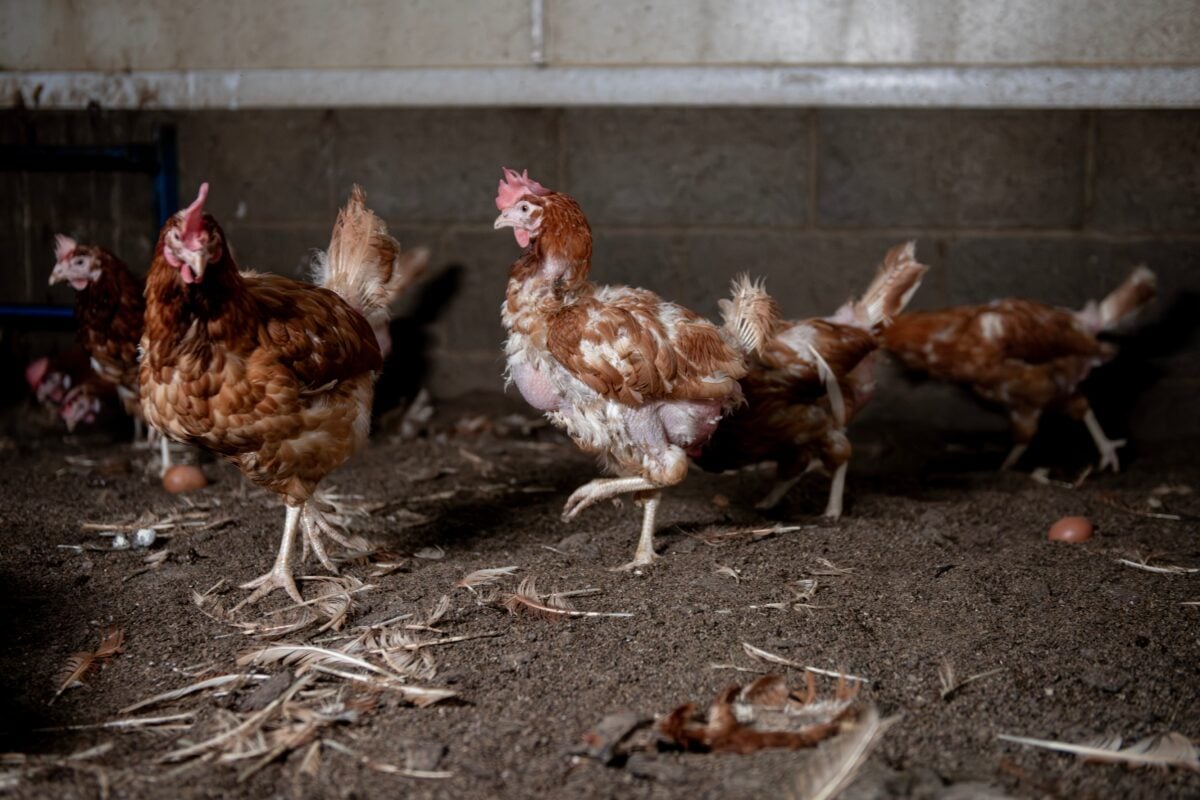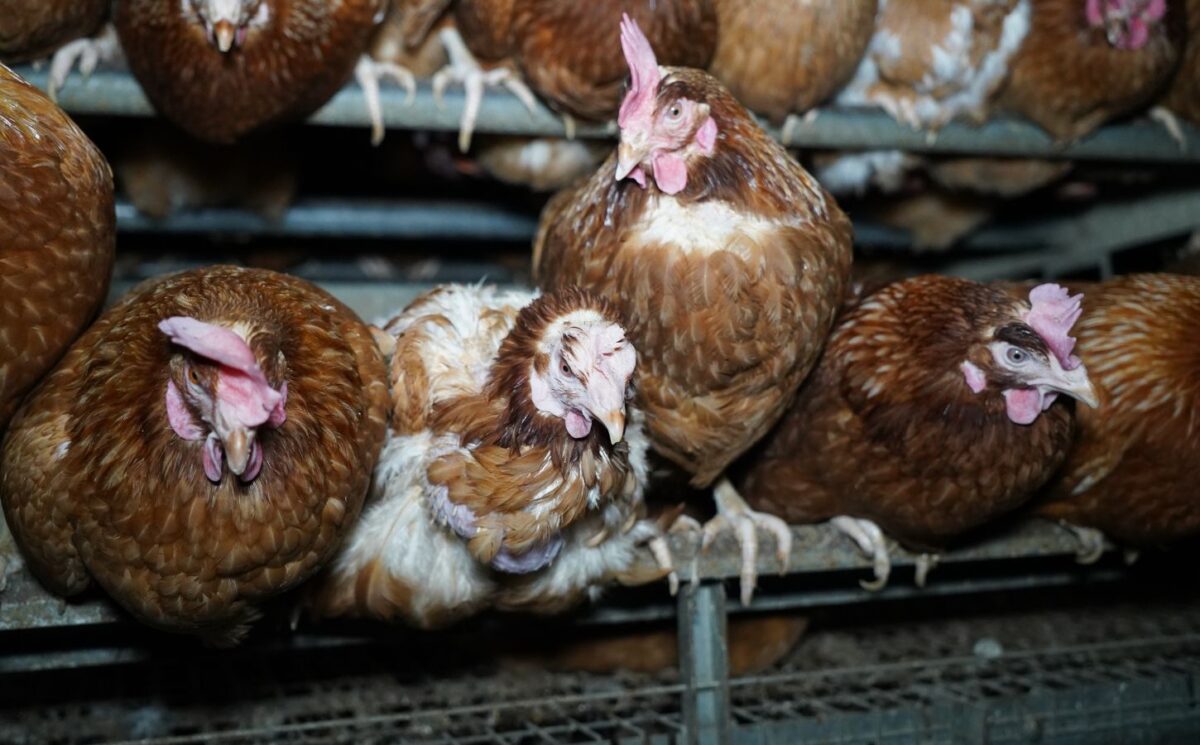*Warning: this article contains images that some might find distressing*
A new investigation has shone fresh light on the reality of “free range” eggs in the UK.
Vegan organization Animal Justice Project looked into a number of cage-free egg producing farms in the UK. The farms, which are RSPCA Assured and part of the British Free Range Egg Producers Association (BFREPA), are key suppliers to major supermarkets.
Investigators described the findings as “deeply concerning.” Tens of thousands of hens were packed into dark barns and forced to live in “nightmare” conditions surrounded by bodies and skeletons of birds who had passed away. Photos and videos uncovered instances of bullying, including one hen being pecked to death on camera. Birds were seen bald and covered in blood, sporting injuries, and many were unable to access food and water.
Many birds were denied outdoor access, which goes against RSPCA guidelines. Drone footage acquired by the organization found that the birds were not let outside on any of the days that they filmed.
“What we uncovered at these three free-range egg farms was nothing short of a nightmare for these poor hens,” Tayana Simons, Campaigner at Animal Justice Project, told Plant Based News. “What we exposed is a stark reminder that assurance labels can be deceiving, and behind the façade of ‘cage-free’ lies a world of suffering for millions of hens.”
What is ‘free range’?

Free range is the name given to eggs that have come from hens who supposedly have access to the outside. Free range eggs make up around 60 percent of eggs sold in the UK, and people have long been prepared to pay extra for them to avoid supporting caged systems.
The UK public tends to free range eggs as an ethical animal product, as adverts and marketing often depicts birds out in large fields and breathing fresh air. The reality, though, is very different.
Modern egg laying hens have been selectively bred to produce as many eggs as possible, and lay around 300 a year (in the natural world, they would lay around 12). This takes a huge toll on their bodies, and they often suffer from broken bones due to calcium deficiencies. When they stop producing eggs, they will be slaughtered.
The “free range” label just means that hens legally have to have access to the outdoors for some part of the day. Birds in this system will often spend the vast majority of their lives in huge barns with tends of thousands of other birds, with barely any room to move. While they should have access to the outside, they are often unable to make it to the door of the barn due to injuries or strict pecking orders in flocks.
Free-range as a marketing tactic

As the Animal Justice Project investigation proves, even the minimal legal guidelines for free range eggs are often not met or enforced properly by farms. A report published last year found that less than three percent of UK animal farms are inspected each year, so breaches of minimal so-called “welfare guidance” are commonplace.
The investigation comes just months before all major UK supermarkets will make all their eggs cage-free. Under the “cage free commitment,” major retailers will only sell whole eggs that have come from free range farms. This move has, according to Animal Justice Project, been met with a surge of “high welfare” claims for eggs.
Welfare labels like free-range, as well as Red Tractor and RSPCA Assured, are often used to convince customers that what they’re buying is ethical. But investigation after investigation shows that animals suffer hugely on farms run by these schemes.
“It’s time for the public to realise that these accreditations make no meaningful difference to the lives of animals who are farmed,” said Simons, “The only way to protect animals is to leave them off your plate.”






